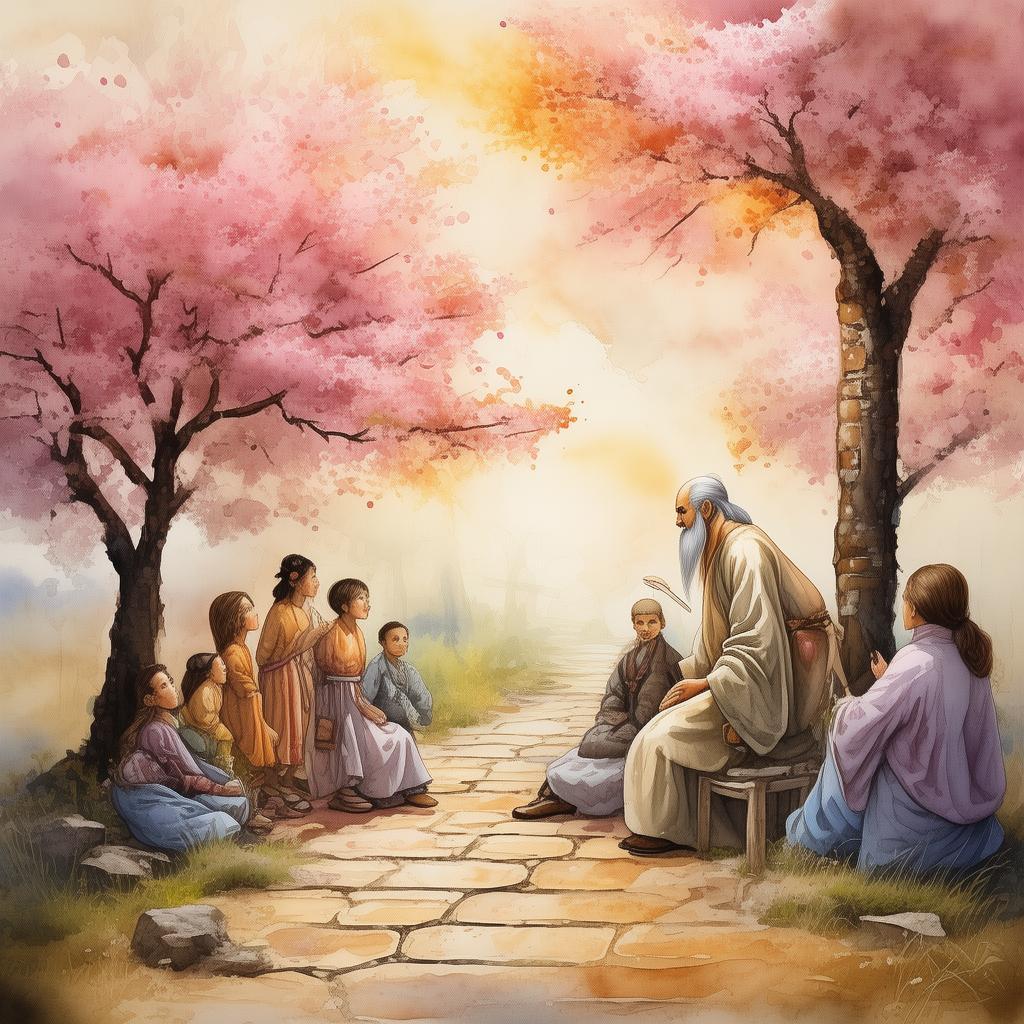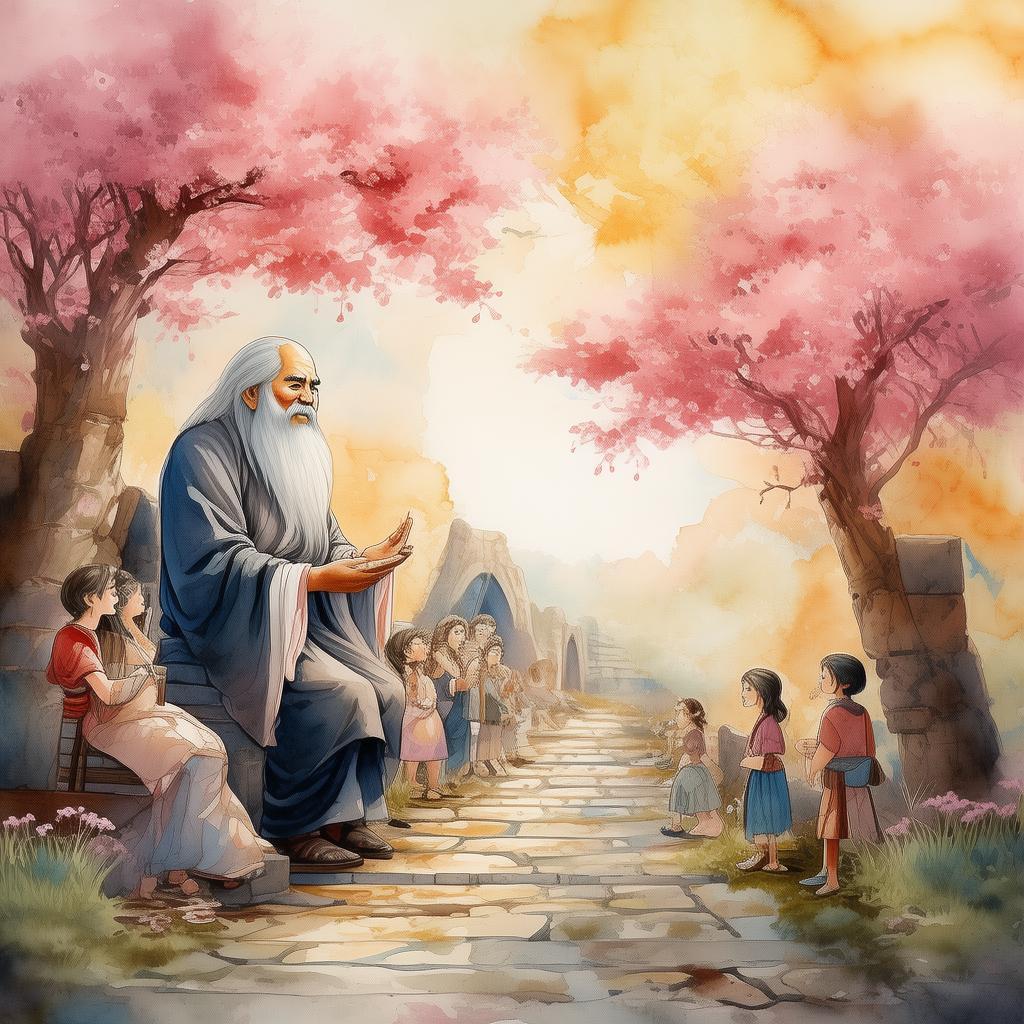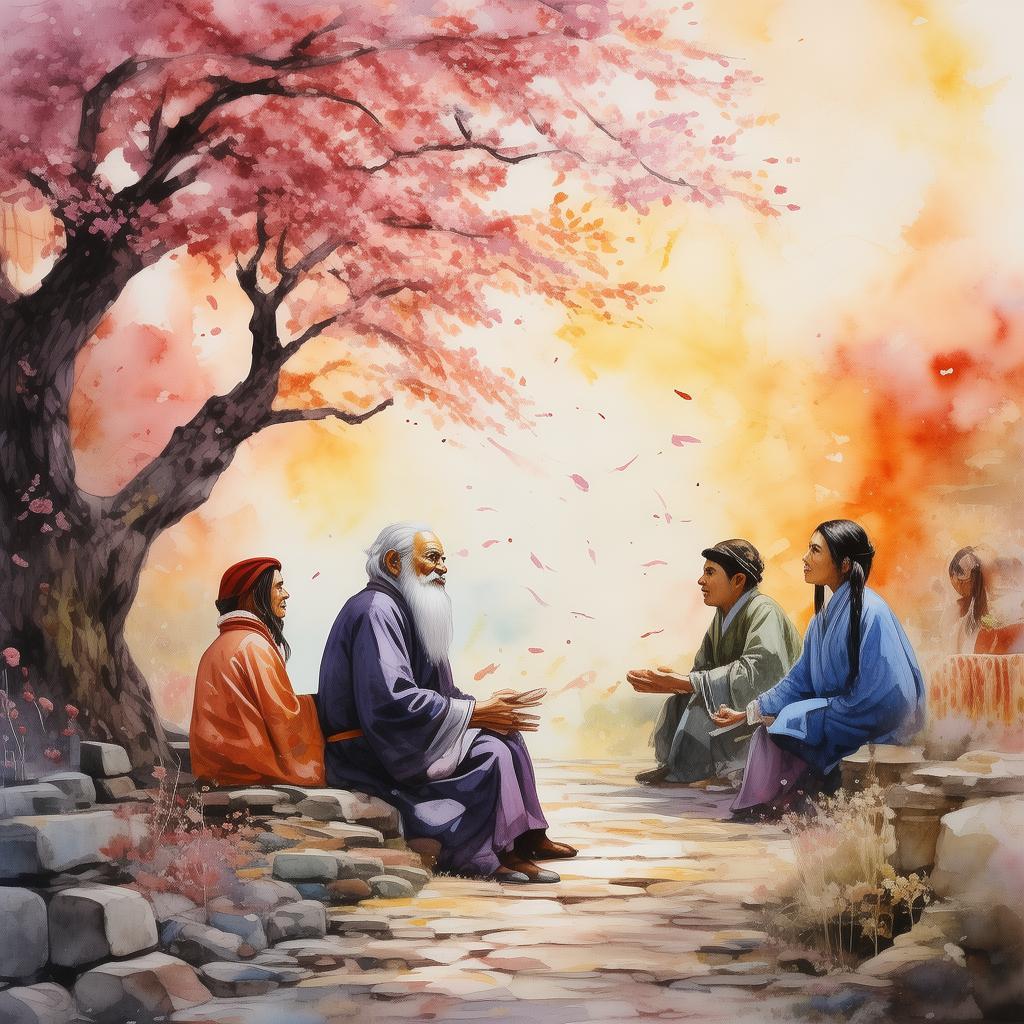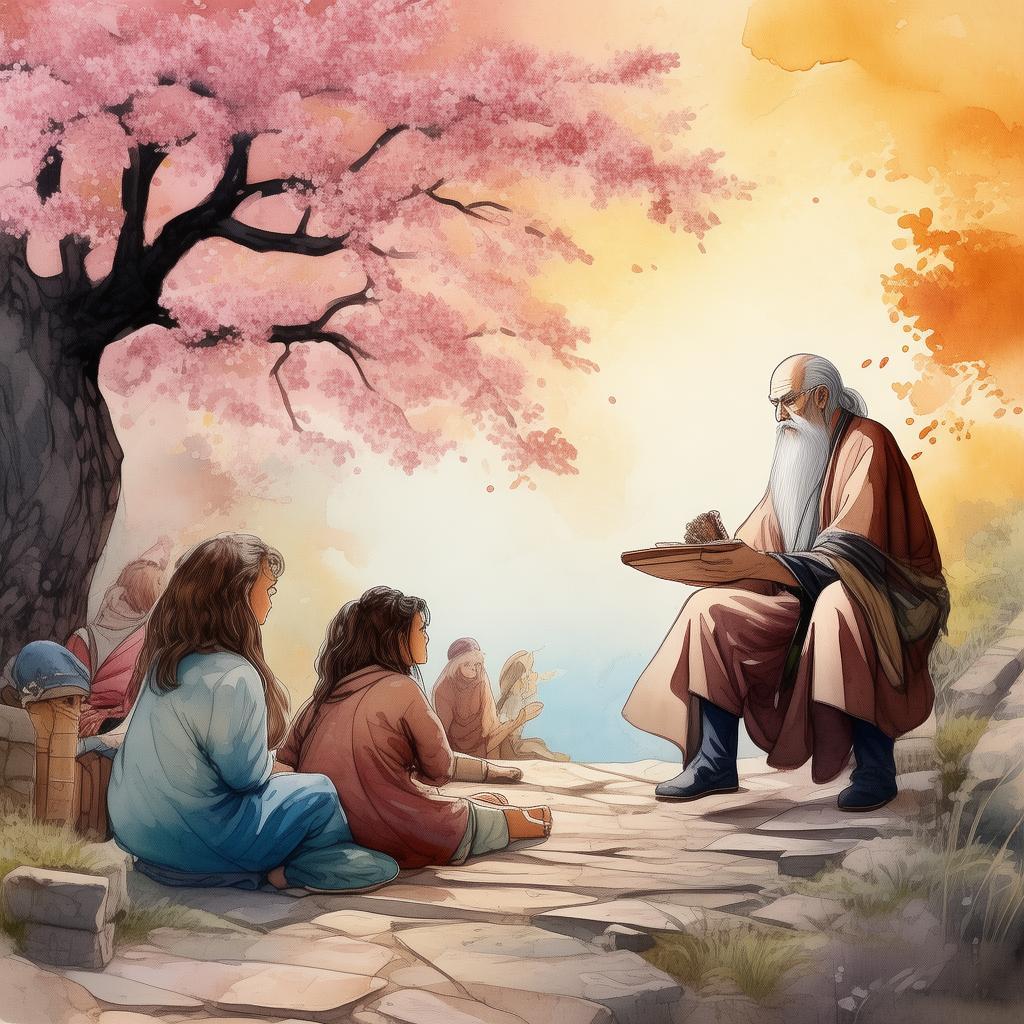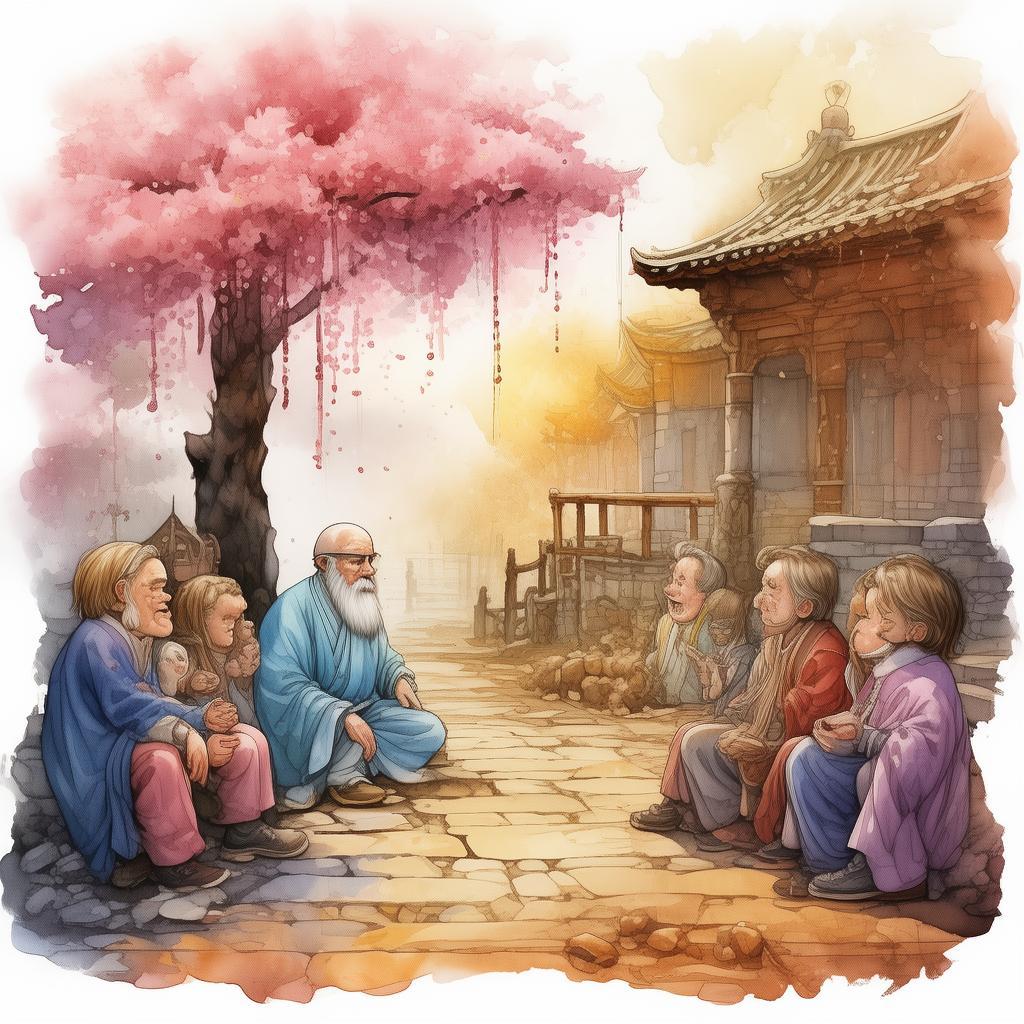The Zen of the Calculating Mind: A Journey to the Heart of Wisdom
In the bustling city of Shanghai, amidst the towering skyscrapers and the hum of the modern world, there lived a young boy named Xiao Ming. From a young age, Xiao Ming had shown an uncanny ability to manipulate numbers with ease. His fingers danced over the keys of the calculator as if they were a piano, and his mind was a well-oiled machine for computations. His teachers marveled at his talent, and his peers envied his prowess.
Xiao Ming's father, a humble librarian, noticed the depth of his son's intellect and decided to nurture it. He introduced Xiao Ming to the world of proverbs, those concise, ancient sayings that held the wisdom of generations. Xiao Ming was fascinated by the simplicity and depth of these proverbs, and he soon found himself engrossed in their meanings.
One day, Xiao Ming's father handed him a worn-out book filled with proverbs. "These are the keys to understanding the world," he said, his eyes twinkling with a mix of pride and hope. "Learn them, and they will guide you through life's journey."
Xiao Ming took the book and began his study. He was particularly drawn to one proverb in particular: "Measure twice, cut once." It resonated with him, and he found himself repeating it over and over, pondering its meaning.
As the years passed, Xiao Ming's talent with numbers only grew, but so did his curiosity about the proverbs. He realized that each proverb was a microcosm of wisdom, a lesson that could be applied to various aspects of life. He began to see the world through the lens of these proverbs, and his calculations became more than mere computations—they were a reflection of his understanding of life's complexities.
One evening, Xiao Ming was engrossed in a particularly difficult problem when he came across another proverb: "The wise man does not seek to be more learned, but more useful." It struck a chord within him, and he decided to apply this wisdom to his life.

He began to use his calculating mind not just for numbers, but for understanding people and situations. He would calculate the best way to help others, to solve problems, and to make the world a better place. His calculations became a tool for compassion and understanding, rather than just a means to an end.
One day, Xiao Ming was approached by a young woman named Li Wei, who was struggling with a personal dilemma. She had been offered a high-paying job in a distant city, but it meant leaving her family behind. She was torn between the promise of a better life and the love she had for her family.
Xiao Ming listened intently as Li Wei spoke, calculating the pros and cons of her decision. He then turned to her and said, "Li Wei, consider this proverb: 'The journey of a thousand miles begins with a single step.' You must decide what kind of journey you wish to embark on."
Li Wei looked at Xiao Ming with a mix of surprise and gratitude. "Thank you, Xiao Ming. I think you've given me the clarity I needed."
Xiao Ming's journey of understanding the proverbs had not only enriched his own life but had also touched the lives of those around him. He became a beacon of wisdom, a person who could be counted on to offer a word of advice or a helping hand.
One day, Xiao Ming's father passed away, leaving him the library where he had worked. Xiao Ming took over the role of librarian, using the space to teach others about the wisdom hidden within the proverbs. He became known as "The Pixelated Sage," a title that reflected his unique blend of calculating mind and Zen-like wisdom.
As years went by, Xiao Ming's library became a sanctuary for those seeking knowledge and understanding. People from all walks of life came to learn from The Pixelated Sage, and he continued to share the wisdom of the proverbs with them.
One day, a young man named Wei came to the library, looking lost and defeated. Xiao Ming noticed his demeanor and asked, "Wei, what troubles you?"
Wei sighed and said, "I've failed at everything I've tried. I don't know where to turn."
Xiao Ming smiled gently. "Wei, remember this proverb: 'The wise man does not regret the past, but learns from it.' You have the power to change your path. Start by understanding your mistakes and move forward with wisdom."
Wei looked at Xiao Ming with newfound hope. "Thank you, Xiao Ming. I will."
The Pixelated Sage continued to guide people through the wisdom of the proverbs, using his calculating mind to help them find clarity and direction. His life became a testament to the power of wisdom, and his legacy lived on through the stories and lives he touched.
In the end, Xiao Ming realized that the true value of the proverbs was not in their complexity, but in their simplicity. They were like a map to the heart of wisdom, a guide that could be followed by anyone, regardless of their background or abilities.
And so, The Pixelated Sage continued his journey, a journey that was not just about numbers and proverbs, but about the endless quest for understanding and enlightenment.
✨ Original Statement ✨
All articles published on this website (including but not limited to text, images, videos, and other content) are original or authorized for reposting and are protected by relevant laws. Without the explicit written permission of this website, no individual or organization may copy, modify, repost, or use the content for commercial purposes.
If you need to quote or cooperate, please contact this site for authorization. We reserve the right to pursue legal responsibility for any unauthorized use.
Hereby declared.
